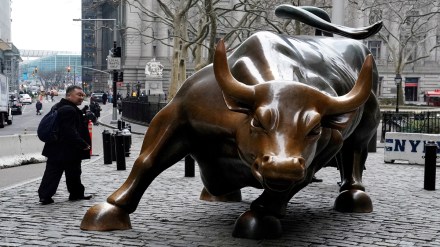First Citizens BancShares’ first-quarter profit beat expectations as the lender earned higher interest income and reaped the benefits of its acquisition of failed Silicon Valley Bank (SVB) last year.
Adjusted profit attributable to common stockholders was $769 million, or $52.92 per share, for the three months ended March 31, the bank reported on Thursday, compared with analysts’ average estimate of $43.32 per share, according to LSEG.
The Raleigh, North Carolina-based lender has been boosted by its buyout of SVB, which collapsed last year. SVB’s failure triggered the biggest banking crisis in 15 years and prompted government rescue efforts.
“It’s been over one year since SVB became part of First Citizens, and we continue to successfully execute on our integration efforts, which are accelerating the momentum of our franchise,” CEO Frank Holding Jr. said.
For the first time since the acquisition, SVB’s loans steadied at $55 billion at the end of March versus December. After last year’s plunge, deposits stabilized at $38 billion in the first quarter.
First Citizens’ net interest income – the difference between interest earned on loans and paid out on deposits – more than doubled from a year earlier to $1.82 billion and was above analysts’ expectations of $1.81 billion.
Compared to the fourth quarter of last year, loans in the SVB Commercial segment jumped $335 million and net charge-offs, debts that are unlikely to be recovered, decreased by $31 million.
Since SVB’s collapse and subsequent acquisition by First Citizens, banks including JPMorgan Chase and HSBC have tried to beef up their businesses catering to startups and venture capital (VC) firms.
Through SVB’s large network of relationships with entrepreneurs, tech companies and VCs, it handled capital market transactions and provided banking services for companies while also serving personal accounts.
First Citizens kept around 80% of former SVB bankers and relationship advisers, according to its earnings presentation. But the lender is also involved in a legal battle with HSBC over HSBC’s hiring of former SVB bankers.
The turmoil sparked by SVB’s collapse has had a lasting impact, shining light on weaknesses across the industry. Regional lenders still face ongoing challenges from rising deposit costs and risky office-building loans a year later.
